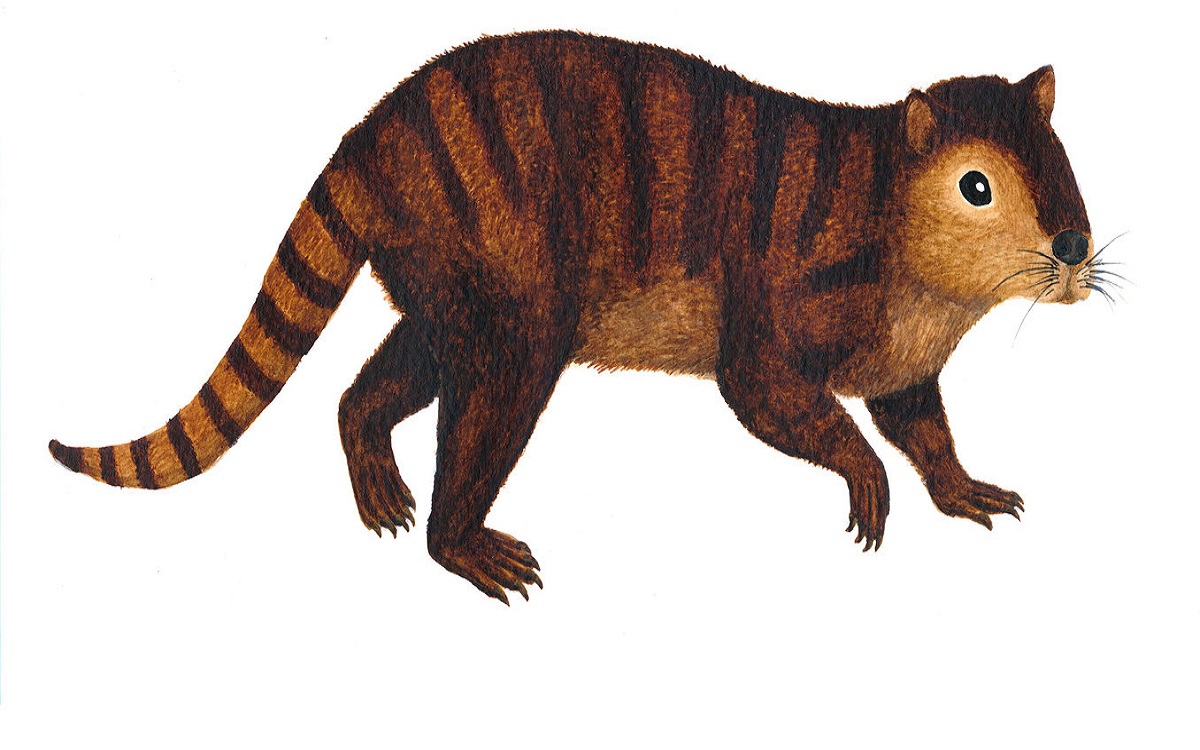'Prehistoric beaver' find explains how mammals took over world
Edinburgh researchers identify extinct species of mammal that flourished as dinosaurs died out

A free daily email with the biggest news stories of the day – and the best features from TheWeek.com
You are now subscribed
Your newsletter sign-up was successful
A team of UK scientists has discovered and classified a previously unknown extinct mammal which flourished as the dinosaurs died out. The beaver-like animal has been named Kimbetopsalis simmonsae.
Dr Stephen Brusatte, of the University of Edinburgh, who led the research, told the BBC the newly found fossil showed how mammals had adapted and survived after an asteroid hit the earth and caused an "extinction event".
He said: "That asteroid hit and suddenly the dinosaurs are wiped out. It looks like mammals were just waiting their turn and as soon as the dinosaurs disappeared, they thrived.
The Week
Escape your echo chamber. Get the facts behind the news, plus analysis from multiple perspectives.

Sign up for The Week's Free Newsletters
From our morning news briefing to a weekly Good News Newsletter, get the best of The Week delivered directly to your inbox.
From our morning news briefing to a weekly Good News Newsletter, get the best of The Week delivered directly to your inbox.
"Literally, the world changed one day. A whole lot of mammals did die, but this group is one that made it through pretty well."
The significant find was made by a student on Brusatte's team, Carissa Raymond, while prospecting at a site in New Mexico in the US. Brusatte said they realised "pretty quickly" that the fossil was of a previously unseen type of mammal.
Kimbetopsalis would have looked like a "prehistoric version of a beaver", according to Brusatte, writing for The Conversation. It was about two feet in length and weighed between 10kg and 40kg.
The animal was buck-toothed, using the incisors in front of its snout to cut up leaves and branches. Despite appearances though, it was not closely related to the modern beaver.
A free daily email with the biggest news stories of the day – and the best features from TheWeek.com
Instead, Kimbetopsalis was part of a now totally-extinct group of mammals, the multituberculates, which originated at the time of the dinosaurs in the Jurassic and thrived for more than 100 million years.
Kimbetopsalis itself lived for "only" a few hundred thousand years after the asteroid hit – a "blink of the eye" in geological terms, writes Brusatte. It lived in lush forests, rivers and lakes.
Significantly, in the absence of the predating dinosaurs, Kimbetopsalis was much larger than mammals that had come before – and a dedicated plant eater. Few mammals, if any, had been vegetarians before Kimbetopsalis.
-
 Minnesota's legal system buckles under Trump's ICE surge
Minnesota's legal system buckles under Trump's ICE surgeIN THE SPOTLIGHT Mass arrests and chaotic administration have pushed Twin Cities courts to the brink as lawyers and judges alike struggle to keep pace with ICE’s activity
-
 Big-time money squabbles: the conflict over California’s proposed billionaire tax
Big-time money squabbles: the conflict over California’s proposed billionaire taxTalking Points Californians worth more than $1.1 billion would pay a one-time 5% tax
-
 ‘The West needs people’
‘The West needs people’Instant Opinion Opinion, comment and editorials of the day
-
 Home Office worker accused of spiking mistress’s drink with abortion drug
Home Office worker accused of spiking mistress’s drink with abortion drugSpeed Read Darren Burke had failed to convince his girlfriend to terminate pregnancy
-
 In hock to Moscow: exploring Germany’s woeful energy policy
In hock to Moscow: exploring Germany’s woeful energy policySpeed Read Don’t expect Berlin to wean itself off Russian gas any time soon
-
 Were Covid restrictions dropped too soon?
Were Covid restrictions dropped too soon?Speed Read ‘Living with Covid’ is already proving problematic – just look at the travel chaos this week
-
 Inclusive Britain: a new strategy for tackling racism in the UK
Inclusive Britain: a new strategy for tackling racism in the UKSpeed Read Government has revealed action plan setting out 74 steps that ministers will take
-
 Sandy Hook families vs. Remington: a small victory over the gunmakers
Sandy Hook families vs. Remington: a small victory over the gunmakersSpeed Read Last week the families settled a lawsuit for $73m against the manufacturer
-
 Farmers vs. walkers: the battle over ‘Britain’s green and pleasant land’
Farmers vs. walkers: the battle over ‘Britain’s green and pleasant land’Speed Read Updated Countryside Code tells farmers: ‘be nice, say hello, share the space’
-
 Motherhood: why are we putting it off?
Motherhood: why are we putting it off?Speed Read Stats show around 50% of women in England and Wales now don’t have children by 30
-
 Anti-Semitism in America: a case of double standards?
Anti-Semitism in America: a case of double standards?Speed Read Officials were strikingly reluctant to link Texas synagogue attack to anti-Semitism